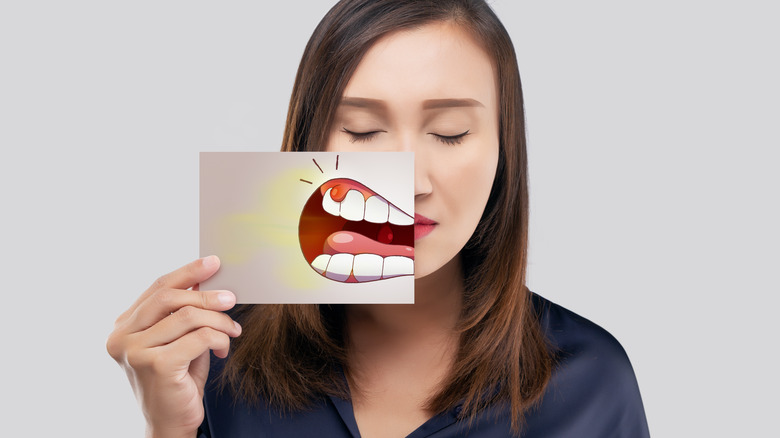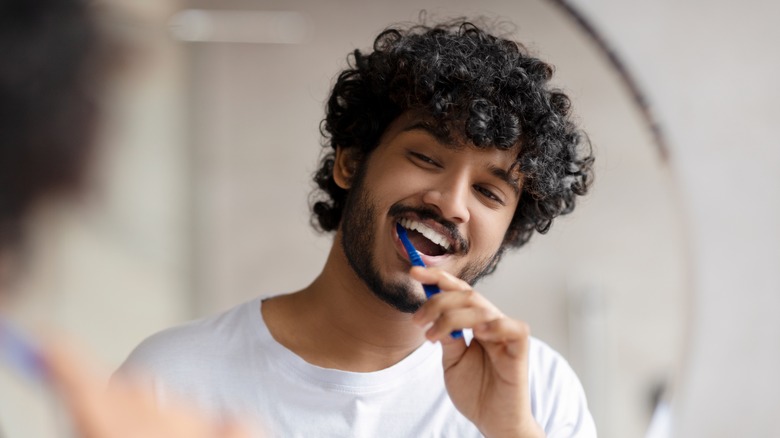What Happens To Your Oral Health While Undergoing Chemotherapy
You may be familiar with some of chemotherapy's most common side effects. These include fatigue, loss of appetite, brain fog, hair loss, and increased risk of infection (via Cancer Care). But chemotherapy can affect oral health, too, especially if a patient's dental condition is less than ideal before treatment. According to Moffit Cancer Center, oral mucositis, aka chemo mouth, is a common side effect during chemotherapy. And the Dana Farber Cancer Institute warns any pre-existing oral conditions like cavities, gum disease, or abscesses can worsen during and after chemo.
Trismus (lockjaw) affects around 30% of patients who receive chemotherapy with radiation, especially in the head and neck (per National Cancer Institute). Chemotherapy can also cause dry mouth and increase the risk for cavities, oral fungal or viral infections, and gingivitis. And chemotherapy may alter your sense of taste and cause malodor. Here's what happens to your oral health while undergoing chemotherapy and how to protect your teeth and mouth before, during, and after treatment.
Good oral hygiene can help with chemo mouth
According to the Moffit Cancer Center, chemo mouth typically begins five to 10 days after initial chemotherapy treatment. Sores and inflammation can develop anywhere in the mouth and along the digestive tract, leading to discomfort and loss of taste. The Cancer Center NSW says oral complications from chemo, especially dry mouth, may increase the risk for tooth decay, and thrush is common after undergoing chemo treatment. Thrush appears as a white or yellowish coating on the tongue, and it can make food taste different and cause bad breath.
To protect dental health, the Moffit Cancer Center recommends completing dental treatments at least one month before beginning chemotherapy. If you wear dentures, make sure they fit correctly, rinse them after meals, and avoid wearing them as much as possible to prevent further irritation. Even if you don't wear dentures, once you begin chemo treatments, rinse your mouth with a solution of 1 teaspoon baking soda, 1 teaspoon salt, and 4 cups of water several times a day to minimize mouth sores and inflammation.
Choose soft foods, and avoid spicy or acidic foods and hard, crunchy foods like chips, crackers, and even crusty bread. Drink plenty of water or suck on ice chips to keep your mouth moist. Use a soft-bristled toothbrush, and replace your toothbrush two days after completing chemotherapy treatments and once a week while your white blood cell count is low. Following these recommendations should help minimize oral symptoms from chemotherapy.


